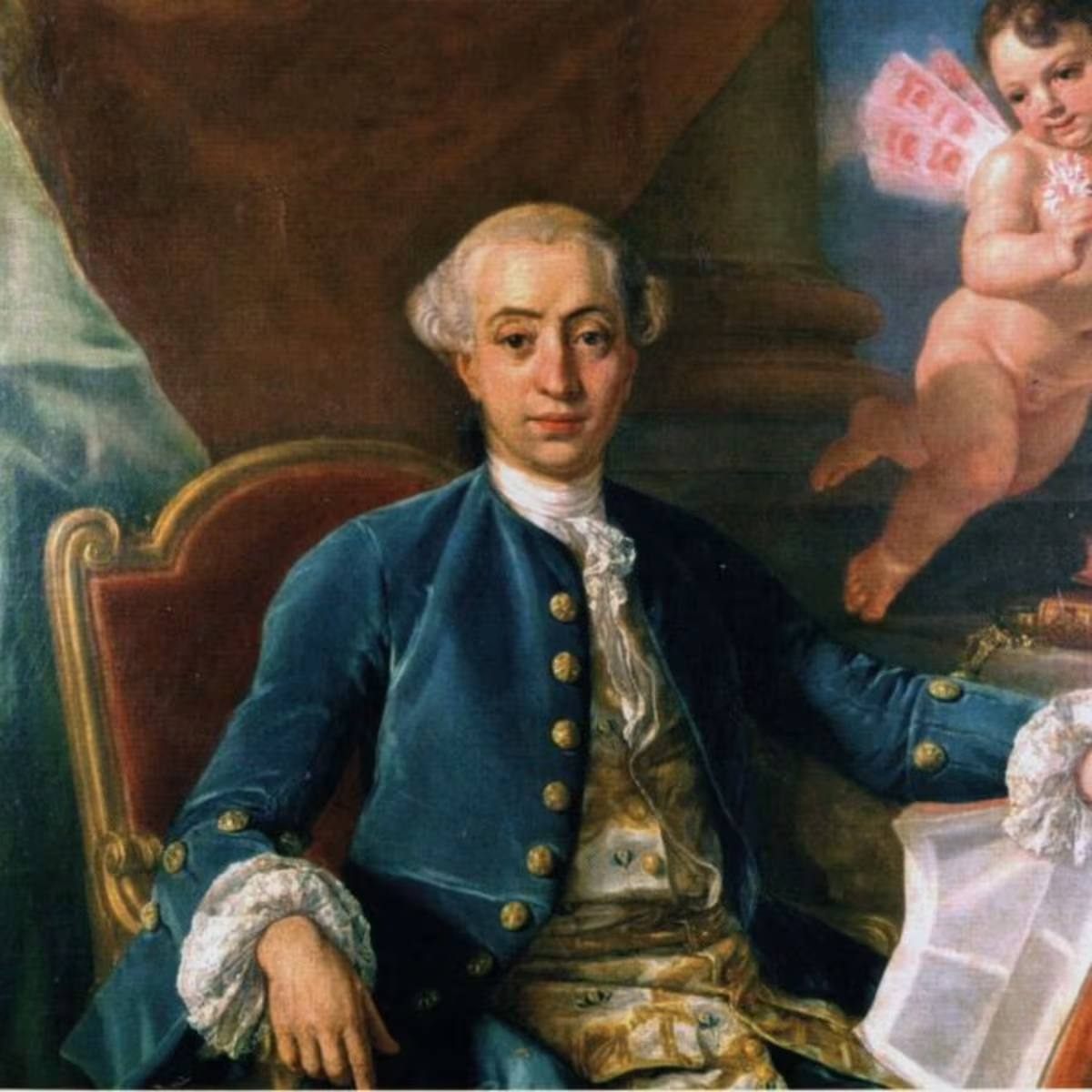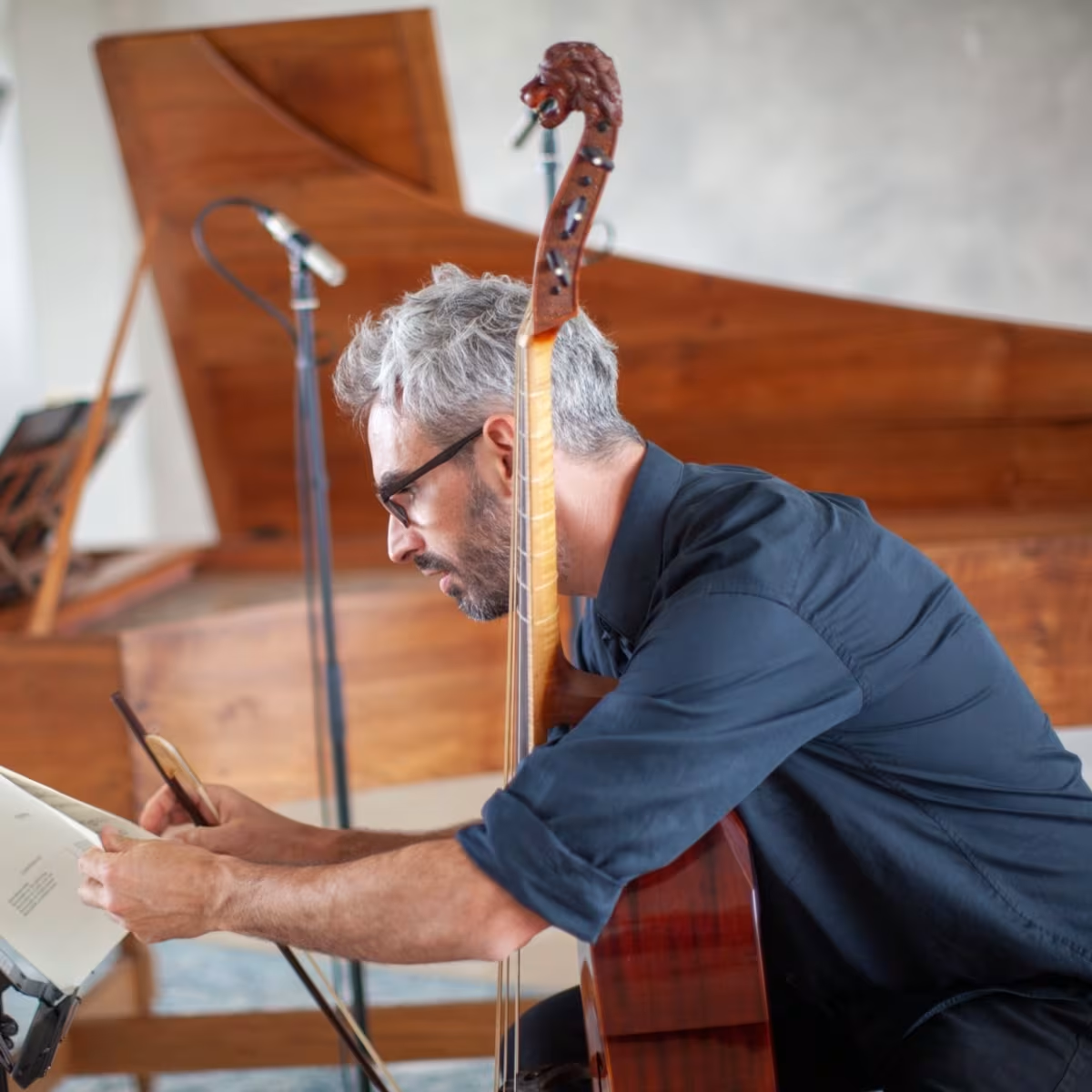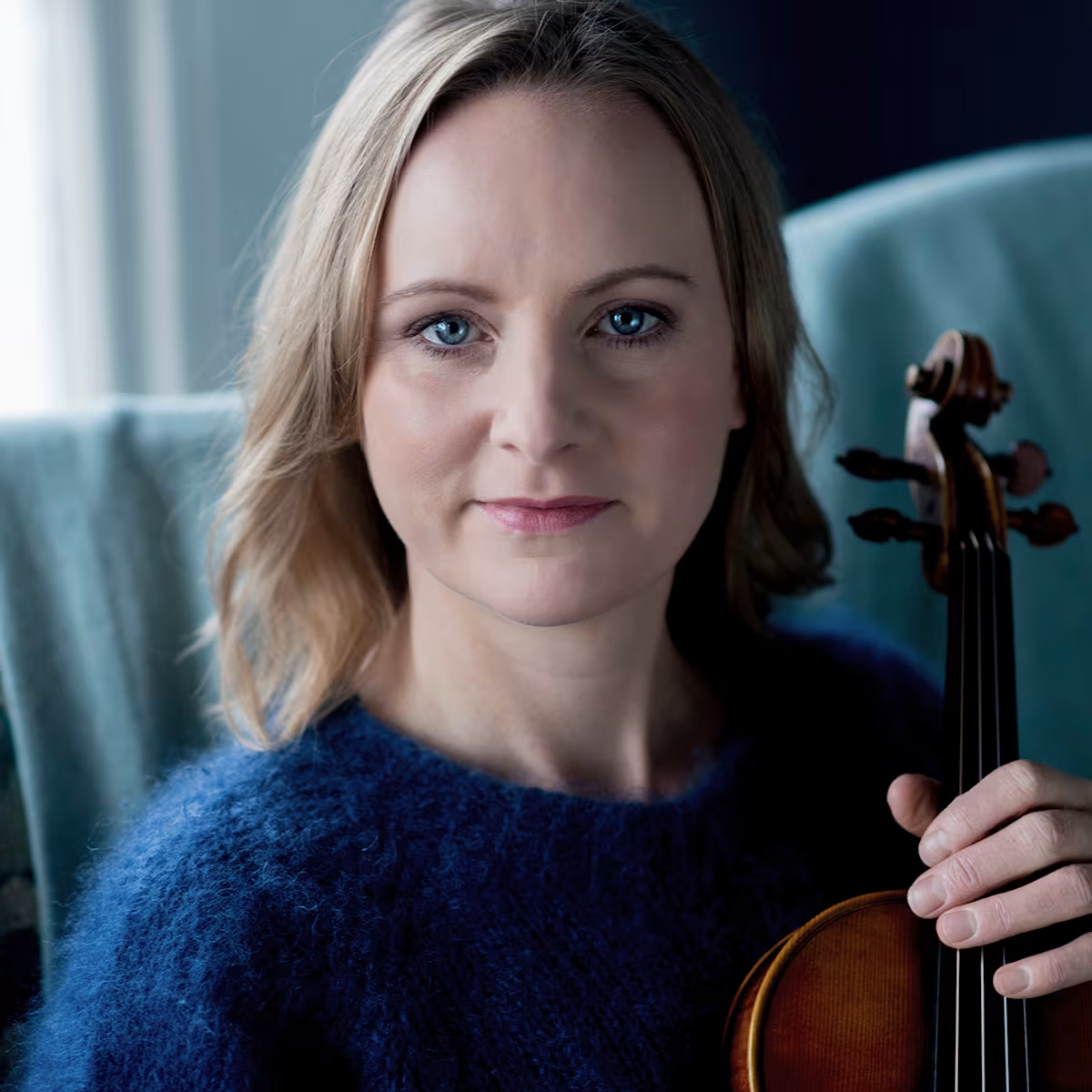Spotlight
In conversation: Ibrahim Aziz
Share this

Ibrahim Aziz specialises in the performance of baroque, renaissance and contemporary music on the viola da gamba. He plays with Chelys Consort, The Rose Consort of Viols and Divertissement Chinois and loves performing at the Handel Hendrix House, which he thinks is a fantastic place for small HIP ensembles.
What do you love about your job?
I love performing on my instrument and sharing the wonderful sounds that it can create, either on its own or with other instruments around it. I love engaging with an audience and sharing what I have created and my feelings through the music.
Who is your favourite composer, and why?
JS Bach because he is God.
What will someone living 400 years from now think about “early” music?
I think in 400 years there won’t be such a distinction between 'early' and 'mainstream' music. In fact, I believe the boundaries are melting away as we speak. And I think this is a positive development, although it will make life harder for those who categorize themselves as 'early' musicians.
Where did you encounter the most receptive audience?
A receptive audience can be found anywhere. It’s how you, as the artist, communicate with them that ensures a captive audience. Perhaps it’s partly due to the space; some venues are easier to connect with than others. However, it’s also a testament to how well the music has been prepared by the artist or ensemble. It requires a certain awareness of your surroundings to communicate effectively, and you can’t achieve this if you are buried in your music. There is something to be said about performing from memory, as long as the process of remembering doesn’t affect your concentration.
No. 1 listening tip?
Always listen to what’s underneath!
Can you describe the feeling of truly understanding a complex piece of music?
You feel that you can let go and perform the music the way you intend. Once you grasp the architecture, you can mold and shape it to your liking – that’s when you become the artist. However, for a complex piece of counterpoint performed by many people, it’s a lengthy process because each part has its own significance. Finding which ‘sentences’ mean the most for the piece as a whole can take time. Of course, having a director might expedite the process, but it’s only one perspective among many.
Do you have a lucky charm or ritual that you follow before important concerts?
I’ve tried bananas, Bach remedies, brandy, lying down, multitask exercises, praying…Now I just breathe. Though I think bananas are good.
Describe a particularly challenging or rewarding moment in your musical journey.
I think finding work is always challenging. The reward comes when you secure it.
How has classical music influenced your life outside of performing?
I like to hear and learn about other kinds of classical music when I’m not performing. I avoid going to see anything baroque/on period instruments because I turn on my critical ear and can’t enjoy it, but with later music, I feel I have more to learn than to criticise. When I was growing up there was a lot more of this mix in my upbringing, which somehow got lost as I grew older and found myself in the business.
If you could meet anyone from the past, who would it be?
I’m not sure I want to. I’m reminded of the meeting between the young Mendelssohn and Sir Walter Scott:
“We found Sir Walter in the act of leaving Abbotsford, stared at him like fools, drove eighty miles and lost a day for the sake of at best one half-hour of superficial conversation. Melrose compensated us but little: we were out of humour with great men, with ourselves, with the world, with everything. It was a bad day”.
Do you have a favourite early / classical music joke?

Share this
Keep reading

Cooking a Musical Pie
Julian Perkins reflects on 'Casanova', his Baroque 'pasticcio' - a musical form where composers created dazzling operas with a mix-and-match approach.

In conversation: Jan Zahourek
Continuo Connect meets freelance double bass, viola da gamba and violone player Jan Zahourek who enjoys a variety of collaborations.

On A Personal Note
Violinist Jane Gordon shares her thoughts about her relationship with historical performances and the ‘new' sound world centred around the fortepiano.

